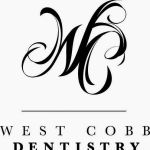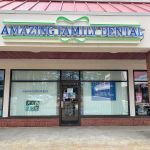Preventing Tooth Loss in Older Adults: Essential Tips for Maintaining Healthy Teeth
- 1. Why Tooth Loss is Common in Older Adults
- 2. Key Tips for Preventing Tooth Loss
- 3. The Importance of Oral Hygiene
- 4. Diet and Lifestyle Choices for Strong Teeth
- 5. Professional Dental Care: What You Need to Know
- 6. Recommended Products for Maintaining Healthy Teeth
1. Why Tooth Loss is Common in Older Adults
Tooth loss in older adults is a common concern, but it's important to understand why this happens. Over time, factors such as gum disease, tooth decay, and poor dental hygiene can lead to the loss of teeth. Additionally, age-related conditions such as dry mouth, bone loss, and reduced immune function can also increase the risk of tooth loss in seniors.
According to recent studies, nearly 1 in 5 adults aged 65 and older experience complete tooth loss. However, with proper care and preventative measures, tooth loss can be delayed or even avoided altogether.
2. Key Tips for Preventing Tooth Loss
Preventing tooth loss in older adults begins with understanding the essential steps for maintaining strong, healthy teeth. Here are some key prevention tips:
- Brush Twice a Day: Brushing your teeth thoroughly twice a day with fluoride toothpaste is one of the simplest and most effective ways to prevent tooth decay and gum disease.
- Floss Daily: Flossing helps remove food particles and plaque from between your teeth, areas that your toothbrush can’t reach. This reduces the risk of gum disease and tooth decay.
- Regular Dental Checkups: Regular visits to the dentist are crucial for identifying early signs of tooth problems. Your dentist can provide professional cleanings, monitor oral health, and offer treatment before issues become severe.
3. The Importance of Oral Hygiene
Good oral hygiene is essential for preventing tooth loss in older adults. Gum disease is one of the leading causes of tooth loss, and it starts with poor oral hygiene. By maintaining a consistent routine of brushing, flossing, and rinsing with an antimicrobial mouthwash, you can help reduce the buildup of plaque and tartar, both of which contribute to gum disease.
In addition, using a soft-bristled toothbrush and gentle strokes can help prevent gum recession, which can expose tooth roots and lead to further dental issues. Oral hygiene habits should start early and continue throughout your life, ensuring that your teeth and gums stay strong as you age.
4. Diet and Lifestyle Choices for Strong Teeth
A balanced diet plays a significant role in maintaining healthy teeth and preventing tooth loss. Older adults should focus on nutrient-rich foods that promote dental health, such as:
- Calcium-Rich Foods: Dairy products, leafy greens, and fortified foods help keep your teeth strong by supporting bone health.
- Vitamin C: Foods rich in vitamin C, such as citrus fruits, strawberries, and bell peppers, can help keep your gums healthy and prevent gum disease.
- Limit Sugary Snacks: Excessive sugar intake can contribute to tooth decay. Opt for healthier snack options like vegetables and nuts.
In addition to diet, avoiding smoking and excessive alcohol consumption can also help protect your oral health. Both smoking and drinking alcohol increase the risk of gum disease and tooth decay.
5. Professional Dental Care: What You Need to Know
Regular professional care is crucial in preventing tooth loss, especially for older adults. Dentists not only clean your teeth but also check for early signs of problems like cavities, gum disease, or oral cancer. Your dentist may also recommend treatments like fluoride treatments or sealants to protect your teeth from decay.
For those who wear dentures or dental implants, it’s important to keep them clean and check for any signs of damage. A professional dental visit can help ensure your dental appliances fit properly and function well.
6. Recommended Products for Maintaining Healthy Teeth
Investing in quality dental products can go a long way in preventing tooth loss. Some highly recommended products include:
- Electric Toothbrush: An electric toothbrush can provide a more thorough clean than a manual toothbrush, especially for older adults who may struggle with manual brushing.
- Floss Picks: If traditional flossing is difficult, floss picks can be an easier alternative for maintaining good oral hygiene.
- Toothpaste with Fluoride: Always use toothpaste that contains fluoride, as it helps to remineralize the enamel and fight cavities.
If you're looking for more advanced solutions, visit Dentistry Toothtruth to explore recommended products and services tailored for older adults.







 Advanced Dental Techniques5.0 (325 review)
Advanced Dental Techniques5.0 (325 review) David L Goettee, D.D.S., PC5.0 (1 review)
David L Goettee, D.D.S., PC5.0 (1 review) Collegeville Pediatric Dentistry4.0 (33 review)
Collegeville Pediatric Dentistry4.0 (33 review) Comfort Care Dental4.0 (1156 review)
Comfort Care Dental4.0 (1156 review) American Unity Dental4.0 (177 review)
American Unity Dental4.0 (177 review) Amazing Family Dental5.0 (304 review)
Amazing Family Dental5.0 (304 review) The Importance of Oral Health Education During Pregnancy for a Healthy Pregnancy
The Importance of Oral Health Education During Pregnancy for a Healthy Pregnancy Best Tips for Brushing Your Teeth Properly for Healthy Gums: Essential Techniques for Oral Health
Best Tips for Brushing Your Teeth Properly for Healthy Gums: Essential Techniques for Oral Health Why Skipping Dental Checkups Can Lead to Bigger Oral Health Problems
Why Skipping Dental Checkups Can Lead to Bigger Oral Health Problems Advantages of Porcelain Dental Restorations
Advantages of Porcelain Dental Restorations How Can Diabetes Cause Tooth and Gum Problems? Preventing and Managing Oral Health Issues
How Can Diabetes Cause Tooth and Gum Problems? Preventing and Managing Oral Health Issues Healthy Habits for Promoting Good Oral Health and Hygiene: Tips for a Healthy Smile
Healthy Habits for Promoting Good Oral Health and Hygiene: Tips for a Healthy Smile